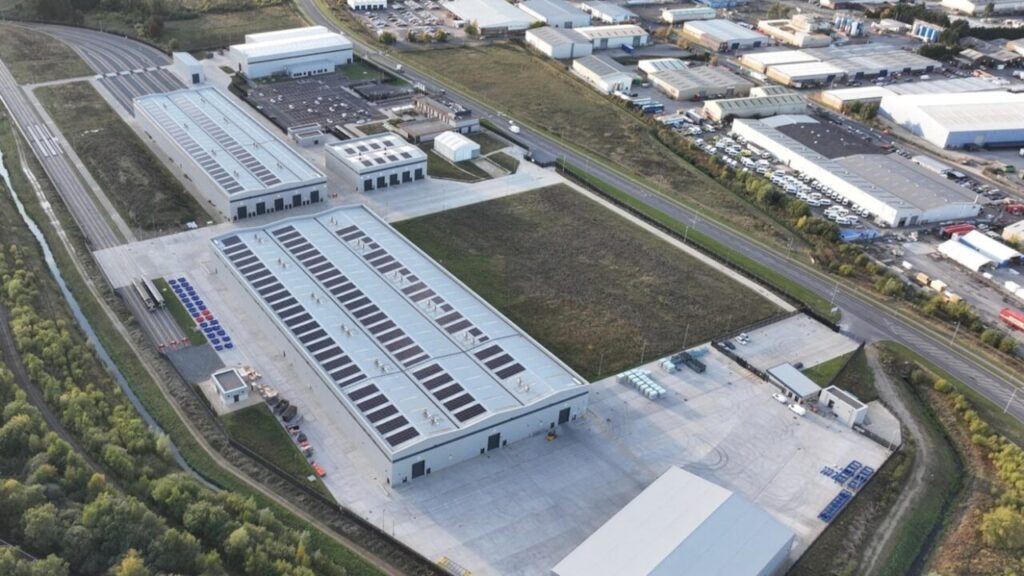
International technology firm Siemens Mobility has energised a new solar array on the rooftop of its Goole Rail Village.
Siemens has switched on the 1,700 panels, which are spread across the three manufacturing buildings on the Goole Rail Village site and have a combined capacity of 1MW. The £2 million installation covers around 20,000 sq metres of roof space and is, according to Siemens, sufficient to meet the needs of the site at most times. The firm has committed to ensuring any additional energy it needs to import during peak manufacturing times will come from renewable sources, while any excess energy generated during non-production hours will be exported back to the grid.
Solar is not the only low-carbon technology that Siemens is seeking to install at Goole to reduce emissions from the site. Siemens Mobility has invested £2 million to install 40 air source heat pumps across the site, a move expected to cut the site’s carbon output by 88%. Siemens Mobility is also rolling out EV charging spaces across the site, with the final total expected to feature one EV charging space for every ten regular parking spaces.
Finbarr Dowling, Siemens Mobility director of localisation, said: “Our vision from the very outset was for the Goole Rail Village to be net zero in its operations by 2030, with this state-of-the-art facility playing a central part in our mission to transform rail travel and transport in the UK.
“This strategic focus has informed the development of a state-of-the-art rail cluster that leads the way on decarbonisation for the industry, with facilities that are streets ahead of many across the sector. It also underpins everything we do at Goole, ensuring that our buildings, energy generation and consumption, how we work, and travel to and from the site all minimise our carbon impact.”
Outside of its own facilities, Siemens has also lent its solar expertise to the UK’s academic sector. In May 2024, the company completed a 200kWp solar PV power plant for the University of York, as part of the University’s £1.5 million project to boost the Institute for Safe Autonomy’s ability to test and develop robots and other autonomous systems to inspect and maintain solar arrays.
As well as providing consultancy services for the project and helping to design, commission, and optimise the solar arrays for the robotic technology being tested onsite, Siemens also set up a data collection system for the panels to further support research projects at the institute.

